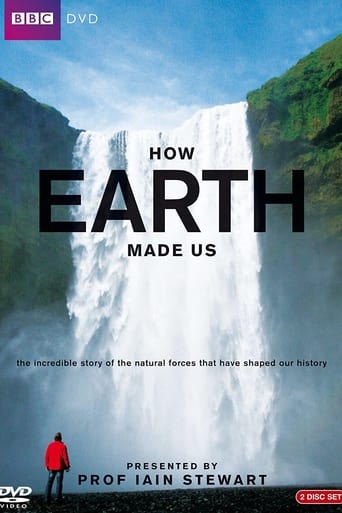Trending Searches:
Popular Movies:

In each episode, geologist Iain Stewart describes how a certain geological force played a determinant part in human history. Culture may render people less dependent on nature, it still interacts with it, and actually increases the importance of such natural resources as minerals and fossil fuels.
... View MoreThe movie is currently not available onine